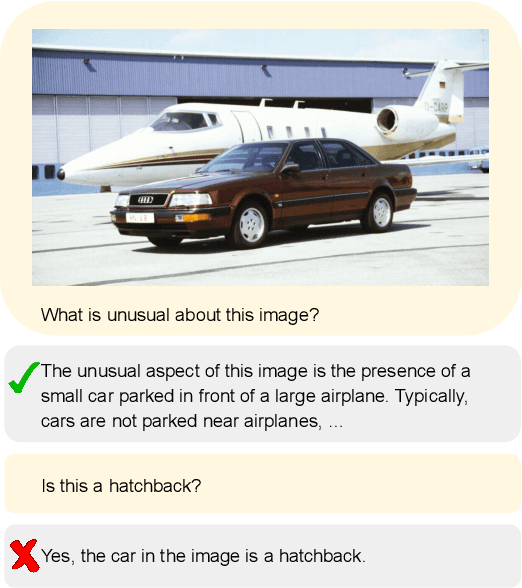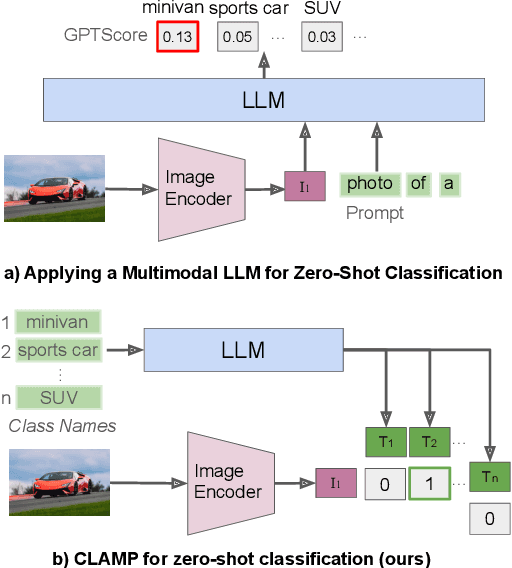CLAMP: Contrastive LAnguage Model Prompt-tuning
Paper and Code
Dec 04, 2023



Large language models (LLMs) have emerged as powerful general-purpose interfaces for many machine learning problems. Recent work has adapted LLMs to generative visual tasks like image captioning, visual question answering, and visual chat, using a relatively small amount of instruction-tuning data. In this paper, we explore whether modern LLMs can also be adapted to classifying an image into a set of categories. First, we evaluate multimodal LLMs that are tuned for generative tasks on zero-shot image classification and find that their performance is far below that of specialized models like CLIP. We then propose an approach for light fine-tuning of LLMs using the same contrastive image-caption matching objective as CLIP. Our results show that LLMs can, indeed, achieve good image classification performance when adapted this way. Our approach beats state-of-the-art mLLMs by 13% and slightly outperforms contrastive learning with a custom text model, while also retaining the LLM's generative abilities. LLM initialization appears to particularly help classification in domains under-represented in the visual pre-training data.
 Add to Chrome
Add to Chrome Add to Firefox
Add to Firefox Add to Edge
Add to Edge